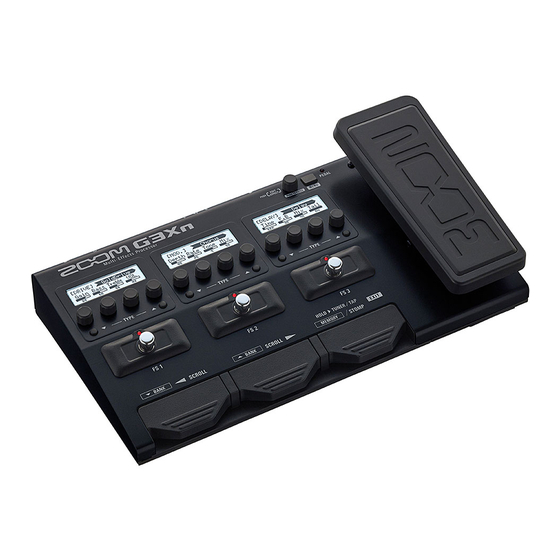
Table of Contents
Advertisement
Thank you very much for purchasing the ZOOM
Please read this manual carefully to learn about all the functions of the
so that you will be able to use it fully.
Keep this manual in a convenient place for reference when necessary.
Usage and safety precautions ............... 2
Introduction ....................................... 3
Terms used in this manual ..................... 3
Part names ....................................... 4
Turning the power on ........................... 6
Display information .............................. 7
Adjusting effects ................................. 8
Using patches .................................... 16
Adjusting the master level ..................... 22
Changing various settings ..................... 23
Copying or reproduction of this Operation Manual in part or in whole without permission is prohibited.
OPERATION MANUAL
Contents
© 2016 ZOOM CORPORATION
.
Using the tuner .................................... 28
Using rhythms .................................... 34
Using the looper ................................. 36
Using the pedal .................................... 41
Using the tap tempo function ............... 44
Restoring default settings and patches ...... 46
Updating the firmware ........................... 47
Troubleshooting ................................. 49
Rhythm List ....................................... 50
Specifications .................................... 51
Advertisement
Table of Contents
















Need help?
Do you have a question about the G3Xn and is the answer not in the manual?
Questions and answers